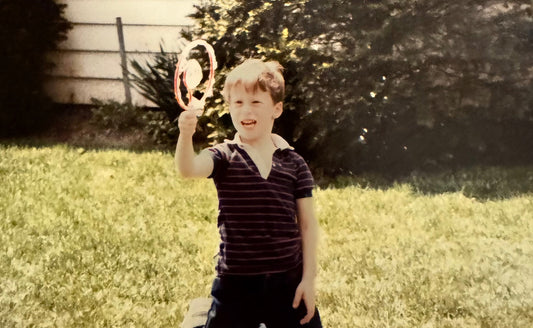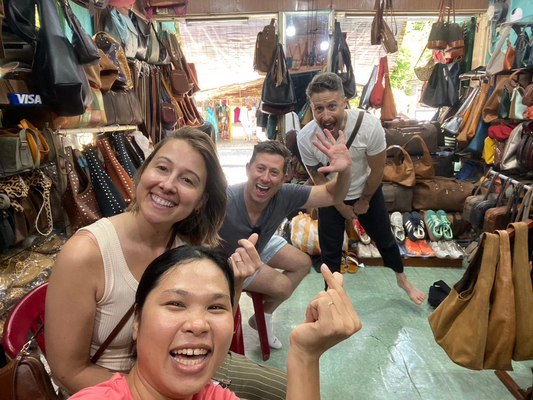
Self-Optimization vs. Showing Up: When Growth Gets in the Way of Connection
Breaking the Loop of Comfort
I’ve been thinking about relationships a lot lately. Mother’s Day just passed, and it brought to mind one of the great pieces of wisdom my mom shared before she passed. She once told me,
"You can only make space for so many meaningful relationships at any given time. It takes sacrifice, but it’s not complicated. Just show up when it matters. Pick up the phone at 3 a.m. Don’t tell them what they need; let it be the other way around. Choose these kinds of relationships, and you’ll never regret it."
She was right. The definition of a relationship really is simple. It means being there for someone when they need you, even if it doesn’t fit your schedule or your style.
It means breaking your own norms, your own rules, and especially your own comforts. Because when we commit to a relationship, we’re almost saying,
"I’m going to be there for you in ways that don’t come naturally to me, if that’s what it takes to create space for you when you need it."
But here’s where it gets tricky for those self-optimizers among us. Don't get me wrong I’m all for optimization. Becoming the best version of ourselves. Hacking our habits. Crushing our goals. I made a career out it.
There is nothing inherently wrong with optimization until it comes at the expense of real relationships. That’s when you’re faced with a choice: to optimize or to be present.
And sometimes, that choice happens quietly, without you even realizing it, until it’s too late. Because at its core, a relationship isn’t just a mutual exchange of support or shared experiences.
It’s a commitment to being there for someone when it really counts. And that rarely fits neatly into our optimized schedules.
That might mean listening when you’d rather fix, showing up when you’d rather recharge, or sitting in someone else’s chaos without trying to turn it into a bullet point on your morning checklist.
Vietnam and the Space We Couldn’t Find
When we moved from Charlotte to Hoi An, we found ourselves on the other side of the world, grappling with change, uncertainty, and a need for connection. At the same time, a dear friend also made the leap, someone we thought would be a part of this next chapter.
But we couldn’t find the space for one another. Not because we stopped caring, but because we had different ideas of what it means to show up.
We needed space to process out loud, to share our fears, to vent, to laugh, to be more than the sum of our productivity hacks and morning routines. To talk with our friend about what was working and what wasn’t in this transition of ours.
But instead, it felt like we were living in parallel worlds, each of us optimizing for a different outcome.
Self-Optimization vs. A Life Worth Living
There’s a tension here, a choice between optimizing yourself and making room for the messy, often inconvenient demands of real relationships. One isn’t necessarily better than the other.
But if your relationships are always on the chopping block of efficiency, you might find yourself optimized, but alone.
I’m not saying self-optimization is bad. It’s just that it can become a trap if it leads you to cut people out because they don’t fit neatly into your routine.
It’s about finding the balance. Being a better version of yourself, while still being the person others can lean on, even when it’s inconvenient.
So, as you optimize for better, faster, stronger, make sure you’re not missing the quieter, more meaningful moments. The ones where nothing gets done, but everything gets felt.
Because at the end of the day, a life worth living isn’t just optimized. It’s connected.




